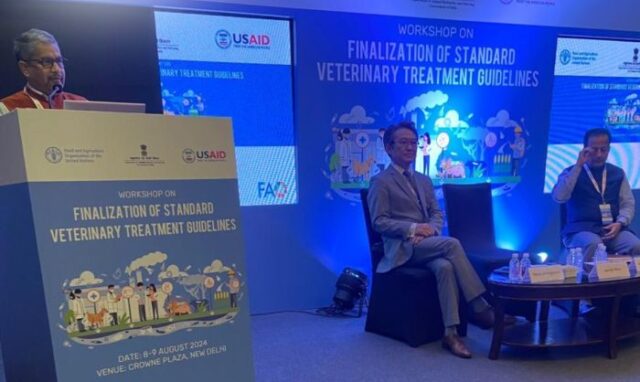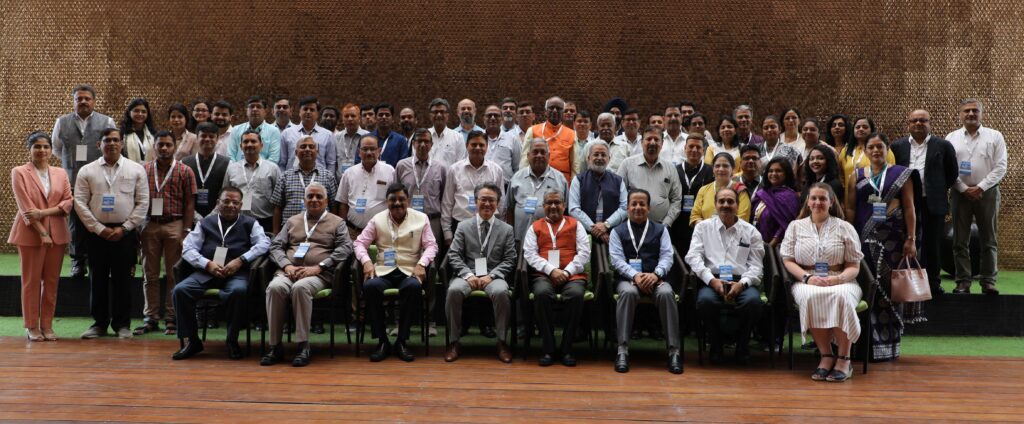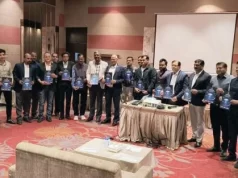

The Standard Veterinary Treatment Guidelines (SVTGs) were finalised at a two-day workshop organised by the Food and Agriculture Organisation of the United Nations (FAO) in partnership with the Department of Animal Husbandry and Dairying on 8-9 August 2024. The workshop was attended by more than 70 participants from the veterinary and animal health sectors, including representatives from ICAR Animal Science Institutes, Veterinary Universities, private sector organisations such as the Indian Federation of Animal Health Companies (INFAH), and international bodies such as USAID and Jhpiego, with support from USAID.
The primary goal of this workshop was to collaboratively establish guidelines that would standardise veterinary practices in India. The SVTGs, in conjunction with a Ready-Reckoner, are designed to harmonise animal treatments, resulting in safer animal-source foods (ASFs) and healthier animals. The objective of these guidelines is to reduce the superfluous use of antimicrobials, pharmaceuticals, hormones, and other medications, thereby reducing residues in ASFs and reducing the risk of antimicrobial resistance (AMR). The treatment protocols for 274 maladies across 12 main species, including cattle, buffalo, sheep, goat, poultry, swine, equines (horses, donkey, mule), camel, yak, and Mithun, will be covered by the SVTGs.
SVTGs will enable more effective disease control and establish a foundation for evaluating and comparing the quality of care, thereby promoting better planning and adherence to treatment standards, as emphasised by FAO Representative in India, Takayuki Hagiwara.
The initiative was commended by Alka Upadhyaya, Secretary of the Department of Animal Husbandry and Dairying, Government of India. She stated, “The guidelines document will be a valuable resource for veterinary professionals, paraprofessionals, and animal health workers in India.” It is imperative that it be routinely reviewed and revised to account for the latest research and technologies in the animal health sector. FAO India’s endeavours to execute this extensive endeavour are commendable.
The veterinary sector in India is expected to undergo a substantial transformation as a result of the outcomes of this workshop, which will serve as a significant milestone in the standardisation of veterinary practices and their alignment with global best practices. This initiative also advances the One Health approach’s objectives by advocating for integrated health solutions that benefit the environment, animals, and humans.



















